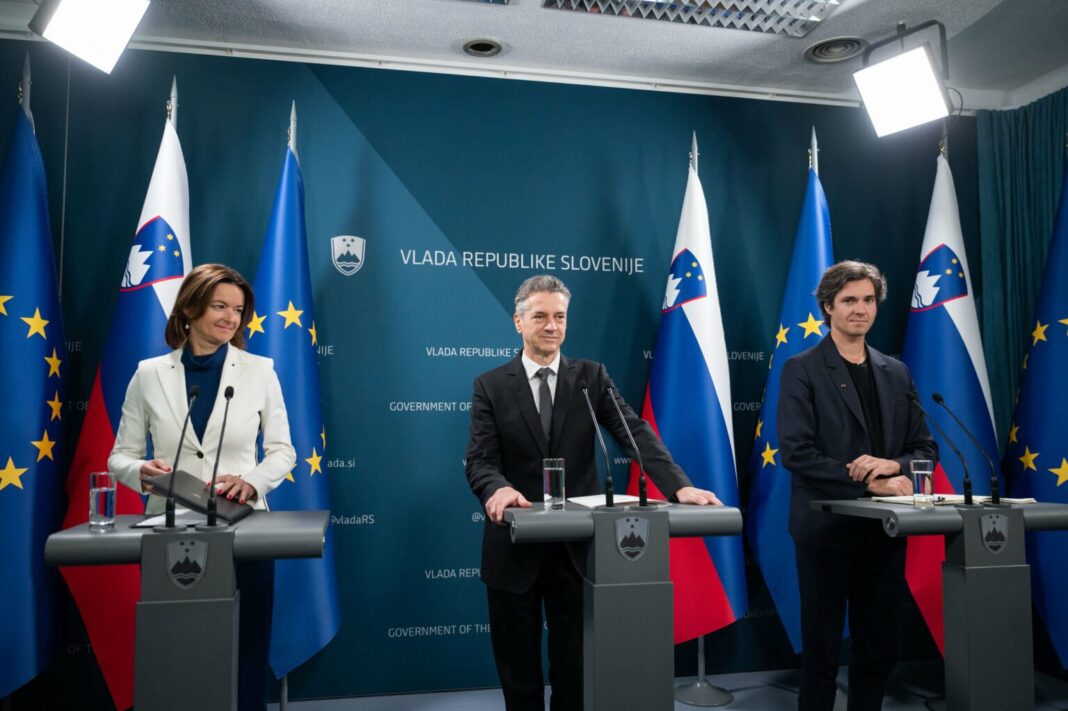By: A. G. (Nova24tv.si)
The first consequences of the abolition or transformation of supplementary health insurance, which was labelled a historic moment by the coalition this summer, are beginning to show. The SDS party had already warned of the financial consequences at that time. These consequences are now visible just a few months later. According to initial financial performance projections, the Health Insurance Institute of Slovenia (ZZZS) is expected to have a deficit of €85.2 million by the end of the year, nearly twice the planned amount. Even the new revenue from the new mandatory contribution, which will bring in around €720 million to the treasury next year, will not improve the ZZZS’s future. On the contrary, it is estimated to bring a €134 million additional deficit in the first year, as calculated by the Association of Managers’ Executive Director Petra Juvančič.
Aleš Mikeln, the CEO of Vzajemna, pointed out this fact during a marathon broadcast, stating that people have not gained anything from the law on the transformation of supplementary health insurance and that things will not get better. Although the government has limited the maximum premium for supplementary health insurance until January 1st, 2024, it has actually caused significant problems for all three insurance companies that will operate with multimillion losses. So, what do policyholders gain from this? At the moment, they might be paying a premium of €35, but the institute has already calculated that it should be €45 – exactly the amount that the insurance companies wanted to raise the price to, leading to a backlash.
The financial plan for ZZZS in 2023 predicted a revenue deficit over expenses of €48.4 million, to be covered by the institute’s resources from higher contributions and unrealised volumes of healthcare services this year. Now, after the abolition of supplementary insurance, the deficit will exceed €85 million, and even the new revenue from the new mandatory contribution, expected to bring in around €720 million to the treasury next year, will not improve the future of ZZZS. On the contrary, it is estimated to bring a €134 million additional deficit in the first year, as calculated by ZZZS.
Who will cover the deficit – a new tax?
Delo reports that ZZZS will need a financial plan adjustment again this year, and it adds that in the first post-COVID year, healthcare performed exceptionally well. But now, the situation is deteriorating. So, who will cover the deficit? “In short, a new tax will be introduced to make the loss even greater and to force the budget to cover the difference,” says Petra Juvančič, the Executive Director of the Association of Managers. The coalition has thus created an even bigger deficit with a populist and ideological measure, and a premium increase that they opposed is imminent, according to Aleš Mikeln, the CEO of Vzajemna.
Recall the statements by Tamara Kozlovič from Svoboda party, where she mentioned the spring announcement of raising premiums for supplementary health insurance by commercial insurance companies. “In a time when, despite increasing amounts of money allocated to healthcare, patients and users are facing more difficult access to healthcare services, any increase in costs borne by policyholders is unacceptable.” So, what will they do now? Zvonko Černač of the SDS warned at the time that the abolition of supplementary health insurance does not bring better services, does not eliminate waiting lists, and does not solve essential problems of the healthcare system. He also pointed out that people would not pay less for supplementary insurance but more through tax and contribution burdens, which is now coming true.
Where are the “unjustified profits” now?
Luka Mesec from the Levica party was a passionate opponent of “greedy” insurance companies, claiming that they were accumulating profits. Therefore, they abolished voluntary insurance and introduced mandatory health insurance, increasing the number of policyholders, transferring the “profits” of insurance companies to ZZZS, and creating a €134 million hole. Tomaž Štih commented on the news, saying that as soon as it became state-owned, all profits disappeared, and there has been nothing but losses from the beginning.

